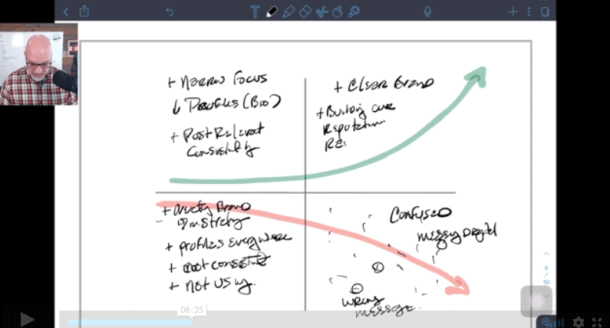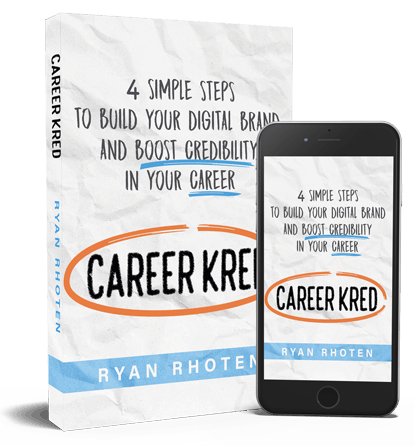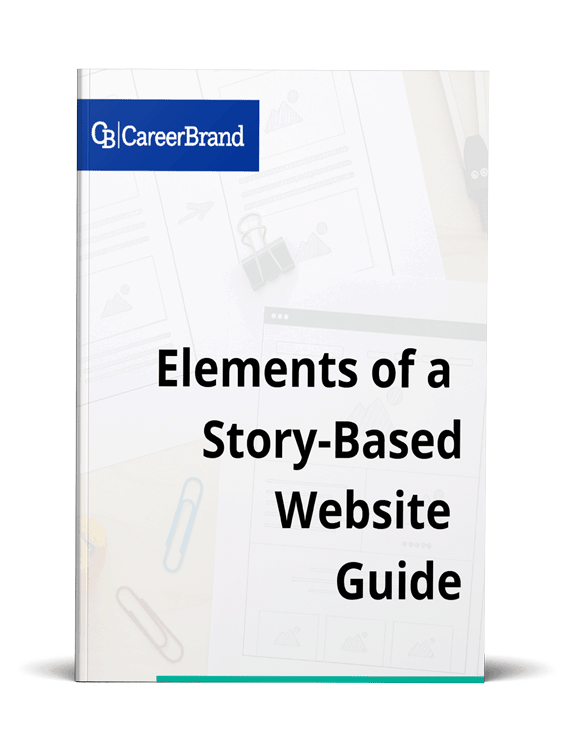
Like our personal brands, we all have a common thread running through our careers. This metaphorical thread is what links our past positions together.
For some of us, the thread is understood and used as a measuring stick / guidepost when making career decisions. For others, the thread is waiting to be discovered. Finding this thread will help you understand why you make certain career choices and the types of roles you gravitate toward.
Within the corporate environment, I believe there are two types of career path. There is career progression within a specific discipline. I'll refer to the folks who choose this path as career constants.
And there is career progression which follows a less traditional path. I'll refer to the folks who choose this path as career adventurers.
There is nothing wrong with either path.
Corporations and its employees need both paths because, as business professionals, I believe we are wired to follow one path or the other. Typically, once a person starts down one path, they tend to stay on the path for the majority of their career.
This doesn’t mean they can’t change paths. However, for most individuals, the need to change paths usually requires a significant event to take place in their life or career to make them consider a different direction.
When that significant event happens, understanding the common thread in all of your previous career choices will be critical to helping you move forward. Lynda Spiegel and I talk about this on the podcast.
THE PATH FOR CAREER CONSTANTS
Identifying your common career thread requires you to do something you may have never contemplated before, which is to take an in-depth look at your career progression. How did you arrive where you are today?
Career constants most likely have followed a path within a specific or related discipline for most of their career. In many cases, they went to school to study the discipline and started with the career path right out of college.
As an example, they may have studied accounting and finance in college. After receiving their bachelor’s degree, they started their career as a business analyst. Eventually, they were promoted into a junior accounting role, then an accounting supervisor, accounting director and eventually the VP of finance. The career progression is “predictable” from a title and to some extent, time standpoint.
By and large, this path follows our parents' formula for career success.
The commonality in this career path is easier to identify. In this case, it could be as simple as having the ability to work with numbers from a variety of different databases and other resources. Or it could be a little deeper than just their ability to work with numbers alone.
Understanding this will require a deeper understanding of what specifically it is they like about numbers. This requires self-reflection which can be difficult. Once this is understood, however, the thread between all of the positions will be easier to see because it is woven through every job choice they have made.
THE PATH FOR CAREER ADVENTURERS
A career adventurer (bootstrapper) is someone who follows a non-predictable career path. They may have studied one major in college, like aviation, only to graduate and take a job in manufacturing making Goofy heads at Disney.
A career adventurer’s path might look like this. They started as an hourly worker and moved to department supervisor. They got promoted to manufacturing engineer with responsibilities for safety, maintenance, continuous improvement then went on to industrial engineering, conducting time studies and setting takt times for manufacturing.
This is followed by a move into supply chain operations as procurement engineer which eventually leads to a role as the global leader for supplier quality and development. This leads to product management and eventually to PMO as project manager.
The challenge facing the individual following this career path is twofold. First, outside observers may be confused by the changes between departments and ask “What does this person want to do?”
The second challenge is the ability of the individual to explain to the outside observers how all of these seemingly disparate roles are linked.
This is where understanding the common thread is key. You see, all of the positions for the career adventurer listed previously are linked and woven together with one common thread.
I should know because this has been my career path.

Image from: http://geekleagueofamerica.com/2012/07/26/5-things-wed-like-to-see-in-the-batman-reboot/
FINDING THE COMMON THREAD
On the surface, my career path may seem disjointed, but I assure you there is a common thread. I had to become somewhat of a detective to find it and it took me a long time to discover but now that I can “see” it, it has become the basis by which I make all job decisions.
This is important because my common thread is very deeply engrained in my strengths. My bet is that yours is as well.
As a self-proclaimed assessment junkie, I usually take one to two self-assessments a year. StrengthsFinder is always an annual staple. Others I’ve taken include Stand Out, The Fascination Advantage and Gallup’s Entrepreneurial Profile 10. The Venn diagram of my results looks more like a circle.
Without fail, my top strengths have been Strategic, Restorative, and Futuristic with Ideation also popping in and out of my top five.
Lisa Cummings, a Strengths Finder performance coach, and I had a great discussion on the StrengthsFinder assessment if you want to learn more.
Here’s a snapshot of my results from Gallup’s StrengthsFinder and Entrepreneurial Profile 10 assessments taken earlier this year:
- Strategic: You create alternative ways to proceed. Faced with any given scenario, you can quickly spot the relevant patterns and issues.
- Ideation: You are fascinated by ideas. You are able to find connections between seemingly disparate phenomena.
- Restorative: You are adept at dealing with problems. You are good at figuring out what is wrong and resolving it.
- Futuristic: You are inspired by the future and what could be. You inspire others with their visions of the future.
- Disruptor: You think of novel ways to move the business forward, you are brimming with new ideas and you imagine possible futures.
- Risk: You are comfortable with ambiguity and take a rational approach to decision-making, you embrace challenges enthusiastically.
Can you see the common thread?
As you can see, most my strengths directly deal with problem-solving. I’m at my best when I’m working with others to figure out a problem, challenge or issue then working to resolve it. I do this by recognizing how different processes and problems intersect and they always do.
I involve those who “live” in the troubled processes to help me map it out so everyone can “see” it. We then work together to turn problems into opportunities, processes into productivity.
And that is my common thread.
Because I understand this about myself, as I look back on my career I can easily see how this fits each one of my previous positions. For as long as I can remember, I’ve been asked to facilitate the resolution of problems or other challenges within an organization. In my early career days, I didn’t realize this is what was happening but others did.
The only real difference between my various roles other than title has simply been the size and scope of the challenge presented. The challenge grew with the corresponding position.
All of the roles started with a problem in need of a resolution. The goal was always “clear-ish” but there was no defined path to resolution.
I was free to explore, create, iterate and decide the best solution for the problem and the company.
WHAT ABOUT YOU?
So, that’s my thread. Now it's your turn. What about you? What is the common thread linking all of your career positions together?
To get started, take a minute and determine whether you are a career constant or an adventurer.
Now grab a piece paper and draw a line down the center.
List out all of your past positions in chronological order on the left and what you liked about each one and what you were doing on the right-hand side.
Do you see anything in common? If this doesn't quite get you there, consider taking one the assessments mentioned in this post as well.
Read through the assessment results and highlight any of the phrases that cause you to immediately say to yourself, “Yep. That’s me.” Compare these results to your list of positions.
I’m betting you’ll find some commonalities that will lead you to your common thread.
Once you know what links your career choices together, use it to vet out any future job positions both internally or externally.
Use it to ask questions about all future roles during the interview process.
Doing this will help you align who you are with what you do and when this happens, everybody wins.





